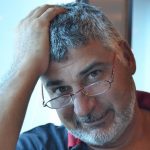 |
Carlo Massimo Casciola (Italy)
Carlo Massimo Casciola is full professor of Fluid Dynamics at the University of Rome La Sapienza, Department of Mechanical and Aerospace Engineering, and Senior Fellow of the Sapienza School for Advanced Studies. He was awarded the ERC Advanced Grant 2013, BIC: Following Bubbles from Inception to Collapse, focused on cavitation, heterogeneous nucleation, bubble collapse, bubble-wall interactions, bio-medical applications of cavitation. He is developing a demonstrator for cavitation enhanced endothelial layer permeability based on a blood-vessel-on-chip founded by the ERC PoC Grant 2017, INVICTUS, In VItro Cavitation Through Ultrasound. |
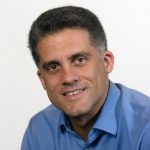 |
David Fernandez Rivas (Netherlands)
David Fernandez Rivas is an assistant professor (tenured) in the Mesoscale Chemical Systems Group at the University of Twente, The Netherlands; also embedded in the MESA+ Institute for Nanotechnology. Since 2017, he is Research Affiliate at the Mechanical Engineering Department, MIT, USA. He received his BS and MSc in Nuclear Engineering in 2004 and 2006, from the Instituto Superior de Ciencias y Tecnologías Aplicadas, InSTEC, Havana, Cuba. He received his PhD in microfluidics and chemical engineering from the University of Twente in 2012 supervised by Professor Han Gardeniers. From 2012-2014, he was a postdoctoral fellow in the Mesoscale Chemical Systems (Prof. R. Luttge) and Molecular Nanofabrication Groups (Prof. J. Huskens). In parallel, he co-founded BuBclean, a spin-off company that innovates ultrasonic processes. His current research interests include thermocavitation, electrolysis, acoustic cavitation, and microfluidics. He has co-authored about 60 manuscripts and 1 patent in these topic areas. He has received several awards including the Young Sonochemist Award from the Japan Society of Sonochemistry (JSS) in 2011, and the Pieter Langerhuizen Lambertuszoon Fonds for his idea on needle-free injection technology based on thermocavitation, given by the oldest scientific society in The Netherlands, the Koninklijke Hollandsche Maatschappij der Wetenschappen (KHMW), in 2016. |
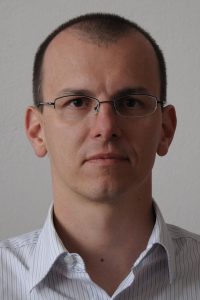 |
Pavel Rudolf (Czech Republic)
Associate professor and head of Viktor Kaplan Department of Fluid Engineering at Faculty of Mechanical Engineering, Brno University of Technology. His research focus is (among others) application of hydrodynamic cavitation for elimination of cyanobacteria and other pathogenic microorganisms. The current research project is collaboration with biologists, using different types of Venturi tubes and orifices, to disintegrate different strains of cyanobacteria, which pollute lakes and reservoirs. We also focus on applying hydrodynamic cavitation (together with advanced oxidation processes) as a tertiary treatment in wastewater treatment process. Other research activities aim on study of cavitation instabilities in hydraulic machines (vortex rope, partial and cloud cavitation over hydrofoils) and cavitation erosion testing. |
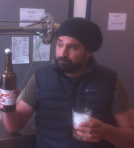 |
Lorenzo Albanese (Italy)
Agronomist and enologist at the Institute of Biometeorology, National Research Council, Italy.
Starting as a technologist in the field of transformation of agricultural products, his research interests shifted to energy systems and devices, then to technological innovation in the food sector. He co-invented a novel beer-brewing equipment and method, exploiting hydrodynamic cavitation science and technology, which was patented and industrialized.
He participated in some research projects and authored tenths of scientific papers and book chapters. |
 |
Pedro Quinto (Mexico)
Associate Professor and PI of the Applied Optics Laboratory at the Nuclear Sciences Institute (ICN), National Autonomous University of Mexico (UNAM). He received M.S and Ph.D. degrees in Physics from the University of Rochester in 2005. Then, he worked as a postdoctoral researcher at the University of California, Irvine with V. Venugopalan and at Nanyang Technological University in Singapore with C.D. Ohl. His research focuses in optical manipulation, in particular he studies laser induced cavitation with structured laser beams to create impulsive forces at the microscopic scale. |
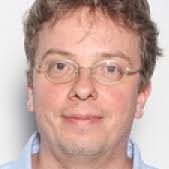 |
Claus-Dieter Ohl (Germany)
Prof Claus-Dieter Ohl was infected by Prof Lauterborn with the bubble virus and defended his PhD 1998 at the University of Göttingen. He received training during his postdoctoral stints from Prof Prosperetti at the very Johns Hopkins University and Prof Lohse at Twente University. In 2004 he was awarded the VIDI fellowship and in 2007 he was appointed at the Nanyang Technology University as Assistant Professor and in 2012 as Associate Professor. Over the years his lab worked on cavitation in microfluidics, the physics of bubble cleaning, photoacoustics and time reversal acoustics, and on the dynamics of surface nanobubbles. Since 2018 he is full Professor at the University of Magdeburg at the Institute of Physics. |
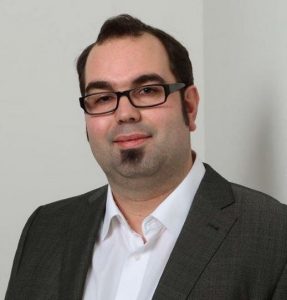 |
Patrick Bräutigam (Germany)
Dr. Patrick Braeutigam is Head of the Research group „Water technology, Cavitation, Renewable Ressources” at the Center of Energy and Environmental Chemistry (CEEC Jena) at the Friedrich Schiller University Jena (Germany).
His research is related to anthropogenic micropollutants (pharmaceuticals, microplastic, …), new techniques for water treatment (Advanced Oxidation Processes, Membranes, Adsorption) and the use of renewable ressources and cavitation.
In the Cavitation field his research focuses on the generation of cavitation (hydrodynamic, acoustic, combined), the analysis of cavitation fields under the use of different chemical dosimeters, the cavitation reactor design und the use of cavitation in different applications (water treatment, biomass disintegration, biodiesel synthesis, synthesis of nanoparticles, modification of surfaces). |
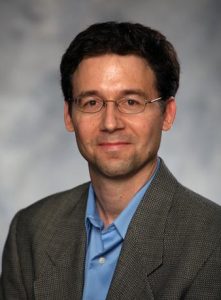 |
Michael Calvisi (USA)
Prof. Michael Calvisi joined the faculty of the Department of Mechanical and Aerospace Engineering at the University of Colorado, Colorado Springs (UCCS) in 2010 as an Assistant Professor, and in 2017, he received tenure and promotion to Associate Professor. He received his B.S. degree in Mechanical Engineering from the University of California, Berkeley where he also received his M.S. and Ph.D. degrees in Applied Science and Technology. After completion of his Ph.D. in 2006, he worked with Prof. John R. Blake as a post-doctoral researcher in Applied Mathematics at the University of Birmingham in the United Kingdom. After a second post-doctoral appointment in the Department of Engineering Sciences and Applied Mathematics at Northwestern University, he joined the faculty at UCCS. Prof. Calvisi’s research interests are in theoretical and computational fluid dynamics with an emphasis on multiphase flows and biofluid mechanics. He has particular interests in cavitation, nonspherical bubble dynamics, and ultrasound, along with their applications in biology and medicine. He recently received the National Science Foundation CAREER Award (2017) and the Researcher of the Year award from the College of Engineering and Applied Science at UCCS (2016-2017). |
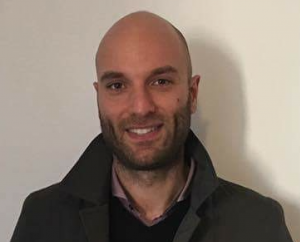 |
Iakovos Tzanakis (UK)
Dr Iakovos Tzanakis received a B.Eng. in Mechanical Engineering in 2005 from the Technological Educational Institute of Crete, Greece, an M.Sc. in Energy Systems and the Environment in 2007 from Strathclyde University, UK and a PhD from Bournemouth University, UK in 2010 in Tribology and Design. He has then worked as a Research Fellow in Bournemouth University (2010-2012) and as an EPSRC Fellow in Brunel University for the UltraMelt project (2013-2016). From April 2016, Iakovos was appointed as a Lecturer in Engineering Materials at Oxford Brookes University, UK where he has recently promoted to Senior Lecturer. He also holds an Academic Visitor position in the University of Oxford, UK since 2013.
Iakovos has a unique expertise in fundamental research of cavitation and advanced characterisation of ultrasonic liquid processing and cavitation erosion; including the application of an advanced cavitometer for acoustic measurements and an optical interferometer for erosion assessment as well as in situ studies. Current research interests include (a) fundamentals of acoustic cavitation and bubble dynamics in liquid metals, (b) the effect of ultrasound on solidification process, (c) interaction of cavitation bubbles with free-floating surfaces. As Principal Investigator Iakovos has received a number of grants from EU and UK with the most recent one being an EPSRC grant (£1.2 million) with title UltraMelt 2 which is in collaboration with a number of academic and industrial institutions. He has over 20 papers in high-ranking journals to his name in total of over 50 during his research career (H-index 13). |